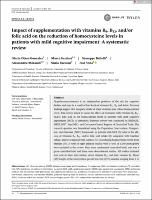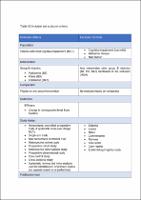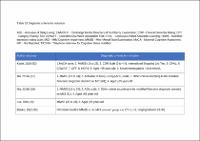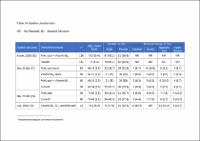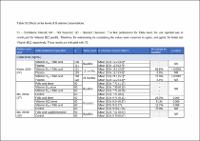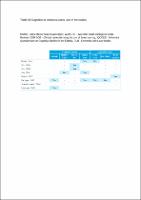| dc.contributor | Vall d'Hebron Barcelona Hospital Campus |
| dc.contributor.author | Olaso-Gonzalez, Gloria |
| dc.contributor.author | Barcons, Núria |
| dc.contributor.author | Viña, José |
| dc.contributor.author | Inzitari, Marco |
| dc.contributor.author | Morandi, Alessandro |
| dc.contributor.author | Bellelli, Giuseppe |
| dc.date.accessioned | 2022-02-25T13:44:30Z |
| dc.date.available | 2022-02-25T13:44:30Z |
| dc.date.copyright | 2021 |
| dc.date.issued | 2022-01 |
| dc.identifier.citation | Olaso‐Gonzalez G, Inzitari M, Bellelli G, Morandi A, Barcons N, Viña J. Impact of supplementation with vitamins B6, B12, and/or folic acid on the reduction of homocysteine levels in patients with mild cognitive impairment: A systematic review. IUBMB Life. 2022 Jan;74(1):74–84. |
| dc.identifier.issn | 1521-6551 |
| dc.identifier.uri | https://hdl.handle.net/11351/7092 |
| dc.description | Àcid fòlic; Hhomocisteïna; Deteriorament cognitiu lleu |
| dc.description.sponsorship | Nestlé Health Science, Switzerland |
| dc.language.iso | eng |
| dc.publisher | Wiley |
| dc.relation.ispartofseries | IUBMB Life;74(1) |
| dc.rights | Attribution 4.0 International |
| dc.rights.uri | http://creativecommons.org/licenses/by/4.0/ |
| dc.source | Scientia |
| dc.subject | Trastorns de la cognició - Tractament |
| dc.subject | Vitamines B - Ús terapèutic |
| dc.subject | Avaluació de resultats (Assistència sanitària) |
| dc.subject.mesh | Cognitive Dysfunction |
| dc.subject.mesh | Vitamins |
| dc.subject.mesh | /therapeutic use |
| dc.subject.mesh | Treatment Outcome |
| dc.title | Impact of supplementation with vitamins B6, B12, and/or folic acid on the reduction of homocysteine levels in patients with mild cognitive impairment: A systematic review |
| dc.type | info:eu-repo/semantics/article |
| dc.identifier.doi | 10.1002/iub.2507 |
| dc.subject.decs | disfunción cognitiva |
| dc.subject.decs | vitaminas |
| dc.subject.decs | /uso terapéutico |
| dc.subject.decs | resultado del tratamiento |
| dc.relation.publishversion | https://doi.org/10.1002/iub.2507 |
| dc.type.version | info:eu-repo/semantics/publishedVersion |
| dc.audience | Professionals |
| dc.contributor.organismes | Institut Català de la Salut |
| dc.contributor.authoraffiliation | [Olaso-Gonzalez G, Viña J] Department of Physiology, Faculty of Medicine, Universitat de València, Valencia, Spain. [Inzitari M] REFiT Barcelona Research Group, Parc Sanitari Pere Virgili, Barcelona, Spain. Vall d'Hebron Institut de Recerca (VHIR), Barcelona, Spain. Department of Health Sciences, Universitat Oberta de Catalonia, Barcelona, Spain. [Bellelli G] School of Medicine and Surgery, University of Milano-Bicocca and Acute Geriatric Unit, San Gerardo Hospital, Monza, Italy. [Morandi A] REFiT Barcelona Research Group, Parc Sanitari Pere Virgili, Barcelona, Spain. Vall d'Hebron Institut de Recerca (VHIR), Barcelona, Spain. Department of Rehabilitation and Aged Care, Fondazione Teresa Camplani, Hospital Ancelle, Cremona, Italy. [Barcons N] Medical Affairs, Nestlé Health Science, Vevey, Switzerland |
| dc.identifier.pmid | 34058062 |
| dc.identifier.wos | 000656282300001 |
| dc.rights.accessrights | info:eu-repo/semantics/openAccess |

 Àrea privada
Àrea privada Contacte
Contacte




